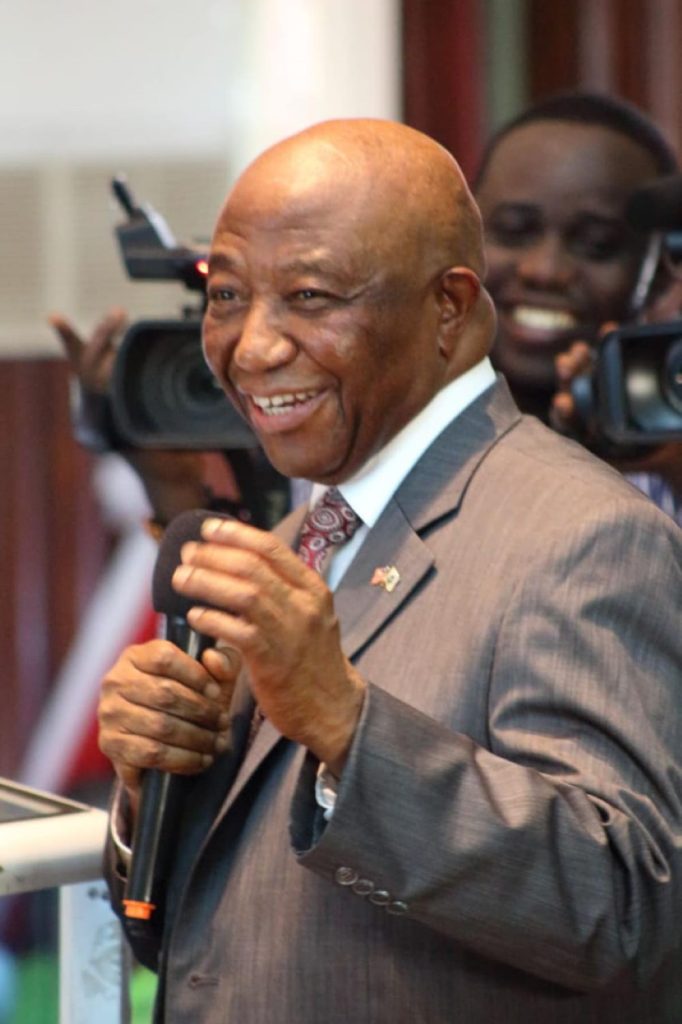President Joseph Nyumah Boakai’s frequent international travels have sparked a heated debate in Liberia, raising questions about whether these trips truly benefit the nation or simply detach him from pressing domestic issues. Between February 2024 and September 2025, Boakai has visited at least fifteen countries, including multiple trips to the United States, China, and other nations across Africa, Asia, and the Middle East. These trips have encompassed a range of engagements, from international conferences and summits to official state visits and private meetings. His recent extended stay in the U.S. for the United Nations General Assembly, departing two weeks before the commencement of the high-level debate, has further fueled criticism regarding the timing and cost of his travels.
The financial burden of these trips is substantial. In 2024 alone, the Boakai administration spent nearly $4 million on foreign travel, encompassing travel expenses, daily subsistence allowances, and incidental costs. The projected expenditure for 2025 remains significant, nearing $2 million, even amidst concerns about fiscal responsibility. Critics, including opposition leader Cllr. Tiawan Gongloe, argue that these expenditures are extravagant, especially given the dire economic situation facing Liberia. Millions of Liberians contend with escalating food prices, a depreciating national currency, and rising poverty levels—a stark contrast to the resources allocated for presidential travel.
Gongloe, a prominent voice for accountability, has accused the Boakai administration of “legalized theft,” highlighting the large delegations that accompany the president on these trips. He points to the recent TICAD9 summit in Tokyo, where a Liberian delegation of over 40 officials reportedly incurred costs exceeding $192,640, excluding travel expenses. Gongloe contends that these expenditures divert resources from essential public services and development initiatives. He criticizes the administration for mirroring the mismanagement and lack of transparency observed in previous governments, despite Boakai’s campaign promise of a “Rescue Mission” to address these issues.
The debate surrounding Boakai’s travels centers on the effectiveness and impact of these diplomatic efforts. Critics question the tangible benefits derived from these engagements, pointing to the absence of appointed ambassadors to follow up on commitments and ensure meaningful progress. The empty Liberian booth at TICAD9, while other nations actively engaged with potential investors, further fueled skepticism, with some perceiving these trips as mere public relations exercises. The government defends these trips as strategic investments, arguing that their value may not be immediately apparent but will yield results in the long term. However, critics demand measurable outcomes and tangible improvements in the lives of Liberians to justify the significant expenditures.
While the administration maintains that these international engagements are crucial for attracting foreign investment and promoting trade, Liberia’s economic indicators tell a different story. Foreign direct investment (FDI) has declined significantly, dropping from $744.58 million in 2020 to $535.58 million in 2021. This decline reflects global trends and internal challenges, including volatility in commodity-based investments, a weak legal and regulatory framework, persistent corruption, and heavy reliance on imports. These factors undermine investor confidence and underscore the need for stronger governance and internal reforms to attract sustainable foreign investment.
The core of the debate revolves around the trade-off between international diplomacy and domestic priorities. Critics argue that the financial resources allocated for these trips could be better utilized to address pressing domestic issues such as healthcare, education, and infrastructure development. They contend that genuine foreign interest stems from internal stability, a strong legal framework, and transparency, suggesting that the government should prioritize these internal factors to enhance Liberia’s global standing. The question remains whether these trips are genuinely strategic investments for the future or costly diversions from the urgent needs of the Liberian people.
Ultimately, the effectiveness of Boakai’s foreign policy approach will be judged by its tangible results. The administration must demonstrate that these travels translate into concrete benefits for Liberia, including increased investment, job creation, infrastructure improvements, and a tangible improvement in the lives of its citizens. Without demonstrable progress, these frequent trips risk being perceived as symbolic gestures rather than substantive contributions to national development, further eroding public trust and hindering Liberia’s economic recovery. The burden of proof lies with President Boakai to demonstrate the value and return on investment from his extensive international engagements.


